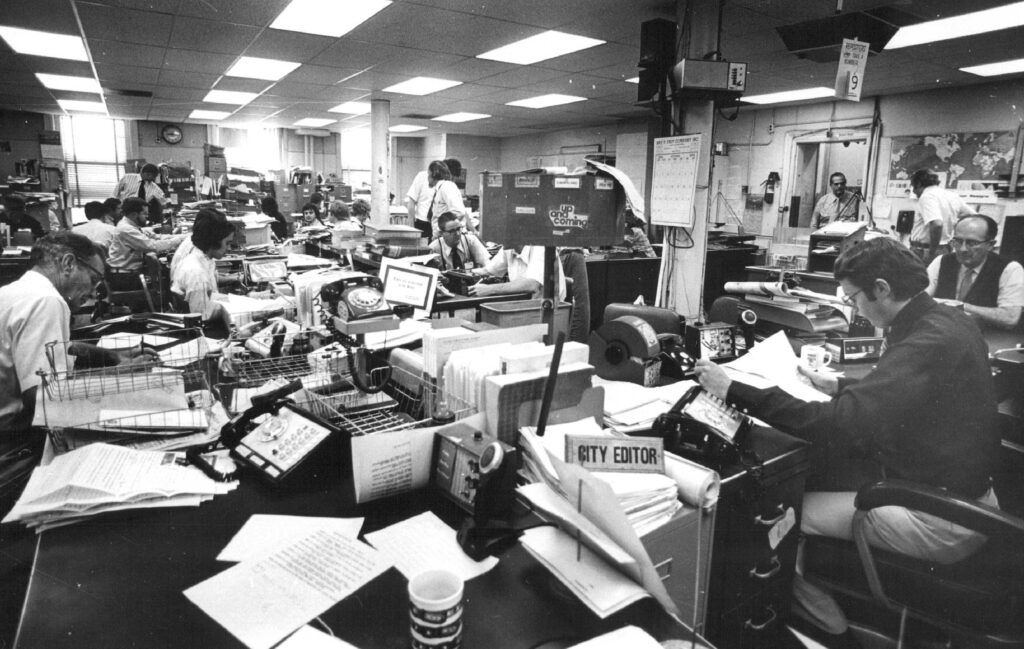
How to save the News
- News Fund paid by every person with a digital plan – broadband, cell, prepaid
- Best if government redirects all 15% GST collected on plans to fund the Fund
- Focus is on news collection, analysis and reporting, not supporting slice-and-dice corporate owners
- Accept the news is going digital, develop a model that works with the 21st century (goodbye TV/papers)

THE NEWS FUND
The People funding the news
“We value the 4th estate, so we vote to tax ourselves to pay for it”
It’s a simple proposal. Don’t tax advertisers, tax ourselves. We the people need the news. We need the 4th estate to serve as a check on both government and the corporate private sector. 95% of Kiwis pay for broadband, be it wireless, fibre or prepaid, on cell phone, laptop or desktop. While we could have an on-top tax, like the old UK TV license fee, or Parliament could simply direct all GST collected by ISP’s goes directly into the fund.
Funding is easy. Allocation is more complicated.
Begin by using an independent Crown entity like the broadcast commission, so it is not politicised by the party in power. Then set up three groups:
- QUALIFICATIONS GROUP: This group does not give out money, but decides who should be in the pool.
- ALLOCATIONS GROUP: Provides annual funding (one year in advance, to enable planning) to news makers who are in the pool.
- OMBUDSMAN: Both speaks for the public and for the news makers (professionals in the industry)

The times are a changing
The internet has turned journalism upside down. From one to many (broadcasting), we now have many to anyone anywhere, as anyone can set up a blog and publish what they want. But in that jungle of chaos, the role of the professional newsmaker, while threatened with extinction, remains as important to democracy as ever. The problem is figuring out who will pay the professionals to do their job.
When radio first came on the scene, the UK introduced receiving licences, implemented by the General Post Office (GPO) using powers within the Wireless Telegraphy Act 1904. When TV emerged, it became the TV license. It was difficult to police because the radio waves were everywhere. With broadband it’s a lot easier. Everyone subscribes and pays a monthly fee for the service. It is no more difficult to collect fees for the News Fund as it is to collect GST.
There are two options: one is to establish a percentage fee on top of the subscription. This spreads the burden more evenly, by costing a high-subscription customer more than someone scraping by who buys just enough prepaid to stay online. But why go there when there is another source?
The existing 15% GST charged on every subscription. Why not simply allocate all GST collected to the News Fund? Sure, there will be bureaucrats made very nervous about the precedent of allocating GST to a particular fund. But 15% would raise a significant amount of money, would be easy to manage, and it would be funding one of the most important legs of a democratic system.

The News Fund: Who should pay?
It’s always easier to spend other people’s money… “Google is getting rich on advertising, let’s have them pay to replace the ads in newspapers and on TV.” Sorry, that’s not how democracy works best. A US Congressman once described the founding of his pioneering wild-west town. We valued education, so we called a meeting, voted to tax ourselves to build a school and hire a teacher.” That is the finest statement of democracy. We value, we pay. In doing this, the news makers: the journalists, reporters, editors, producers and everyone who gets the news to us knows who they serve… the people and communities of our nation. All of us, not one sector. Democracy does not have one view, it has many, and it is from the public debate comes the wisdom of crowds. Fair and balanced news is easier when the paymaster are the people, note Facebook. Who should pay? You and me.
“Yes, the disruption of the Internet can be blamed for the destruction of the business model that once made journalism a thriving, well-paying enterprise, but it has also created an array of new tools for reporting. Somebody will eventually figure out how to make online newspapers profitable – I hope. David Horsey
How the Pool is qualified
With online articles, one metric unavailable in the days of printed news is how many people have read the article, how long they spent and how many times they returned. That’s a good start, but it tends to rig the game in favour of the 800 pound gorillas in the jungle.
Rate journalists and organisations by how hard they worked – is the article a patsy, or did they dig hard and long? Rate them on their political leanings… do they subject both sides to the same hard talk or give a pass to their favoured side. Build in a component that rewards budding young journalists while supporting the seasoned hacks who pass on the cultural thread that only experience can bring.
Evaluate the cheap shots: if it bleeds it leads, with the more nuanced stories that uphold the role of the 4th estate. Reward independent news, discouraging consolidation by a few large companies that own multiple outlets to the point of duopoly.
How News Makers Work
Have laptop, will travel: A lot of work is now done in home offices, on the road, in Zoom meetings and online collaboration. But there is still great value in face-to-face. Indeed the more we digitise the more we need to humanise.
Instead of expensive leased office space that is designed to support a corporate hierarchy, divide the work into boiler-room and backroom.
Backroom is the technology required to make a system work. It does not need duplication, provided the job is solely maintaining the presentation. This can be three competing organisations (to keep them sharp and competitive) with servers in the back.
Boiler room is where newsmakers connect face-to-face. It can be shared workspace with desks and meeting rooms. It still needs professional film people using better equipment than cell phones. Editing 14 hours of raw footage to get a 3 minute story is as valid today as it was last century.
Let the professionals form their own associations, not beholden to overseas hedge funds or global corporate networks. Fund the news not the boss.
Daily News and Longer Jobs
The daily news is easy to fund. Journalists, Editors, Producers who write, edit and organise the events of the day. But the people also need the stories that can take months of hard work, hours or even days of video distilled down into a five-minute feature. Without this, news becomes superficial, easily manipulated by well-funded experts in public relations.
Deep news requires skilled journalists to root out the story, collaboration among them, editorial involvement throughout. It also is important for the standards commission to vigorously enforce neutrality, or if there is a bias, that both sides of the story are equally represented.
The News Fund funds news, not views. Click bait, fake news and other ills emerging in the digital jungle should not be funded. Newsmakers should never fear for their job by what they write, as long as they believe it is true and newsworthy.
It’s OK to establish a parallel Op-Ed Fund that pays for professional pundits, but draw a clear line so the public understands what’s news and what’s views. Allow private funding of op-ed, with clear disclosure of who is paying.